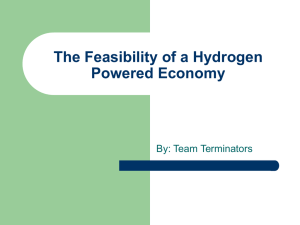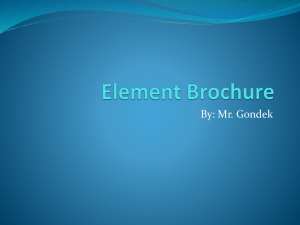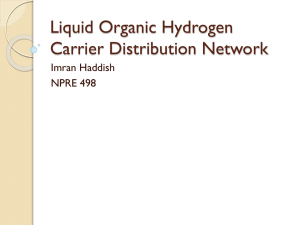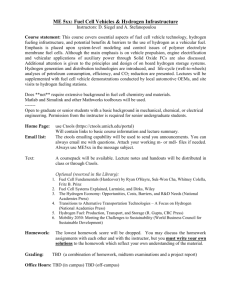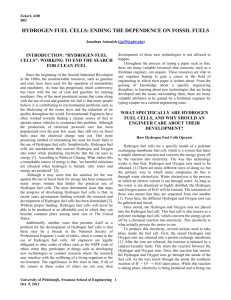Kane 1 Kane 2 Kane 3 Charlotte Kane Texas Brigades 14 March
advertisement
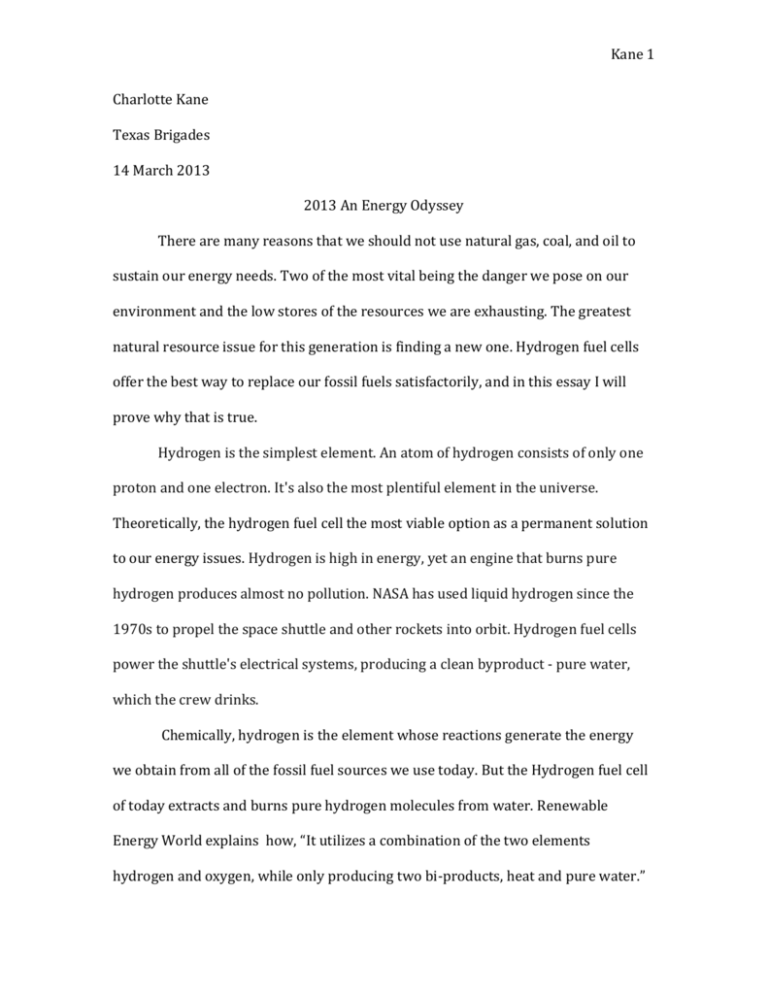
Kane 1 Charlotte Kane Texas Brigades 14 March 2013 2013 An Energy Odyssey There are many reasons that we should not use natural gas, coal, and oil to sustain our energy needs. Two of the most vital being the danger we pose on our environment and the low stores of the resources we are exhausting. The greatest natural resource issue for this generation is finding a new one. Hydrogen fuel cells offer the best way to replace our fossil fuels satisfactorily, and in this essay I will prove why that is true. Hydrogen is the simplest element. An atom of hydrogen consists of only one proton and one electron. It's also the most plentiful element in the universe. Theoretically, the hydrogen fuel cell the most viable option as a permanent solution to our energy issues. Hydrogen is high in energy, yet an engine that burns pure hydrogen produces almost no pollution. NASA has used liquid hydrogen since the 1970s to propel the space shuttle and other rockets into orbit. Hydrogen fuel cells power the shuttle's electrical systems, producing a clean byproduct - pure water, which the crew drinks. Chemically, hydrogen is the element whose reactions generate the energy we obtain from all of the fossil fuel sources we use today. But the Hydrogen fuel cell of today extracts and burns pure hydrogen molecules from water. Renewable Energy World explains how, “It utilizes a combination of the two elements hydrogen and oxygen, while only producing two bi-products, heat and pure water.” Kane 2 The next step for hydrogen fuel cells that would put them on the fast track to becoming a staple energy source is to use them to power our personal vehicles. Triple Pundit in their article, “Fuel Cell Energy: Pros and Cons” cites: “Fuel cells that operate at high temperatures are well-suited for combined heat and power (CHP) applications, which increase their overall efficiency. This could be done at a large industrial scale, or at the residential level.” The United States federal government is already considering proposals to build a fleet of hydrogen refueling stations for the possible lines of hydrogen powered cars that stand to come to market as early as 2015. If these lines are successful in updating the transportation of the average American then it is assured that popular opinion will favor the replacement of fossil fuels powering our electrical grid. Hydrogen fuel cells offer a safer and more available alternative to nonrenewable sources used today. They are more easily adaptable to large power grids, and provide greater source reliability than the popular trends in renewable energies such as solar, and wind power. It is my hope that this paper has helped to convince you to do more research on this new technology that may stop the modern energy crisis, and help to renew our environment. Kane 3 Sources Cited: Siegel, RP. Fuel Cell Energy: Pros and Cons. Triple Pundit, 2012 Publication of the National Renewable Energy Laboratory. Hydrogen Energy. Renewable Energy World. 2012

